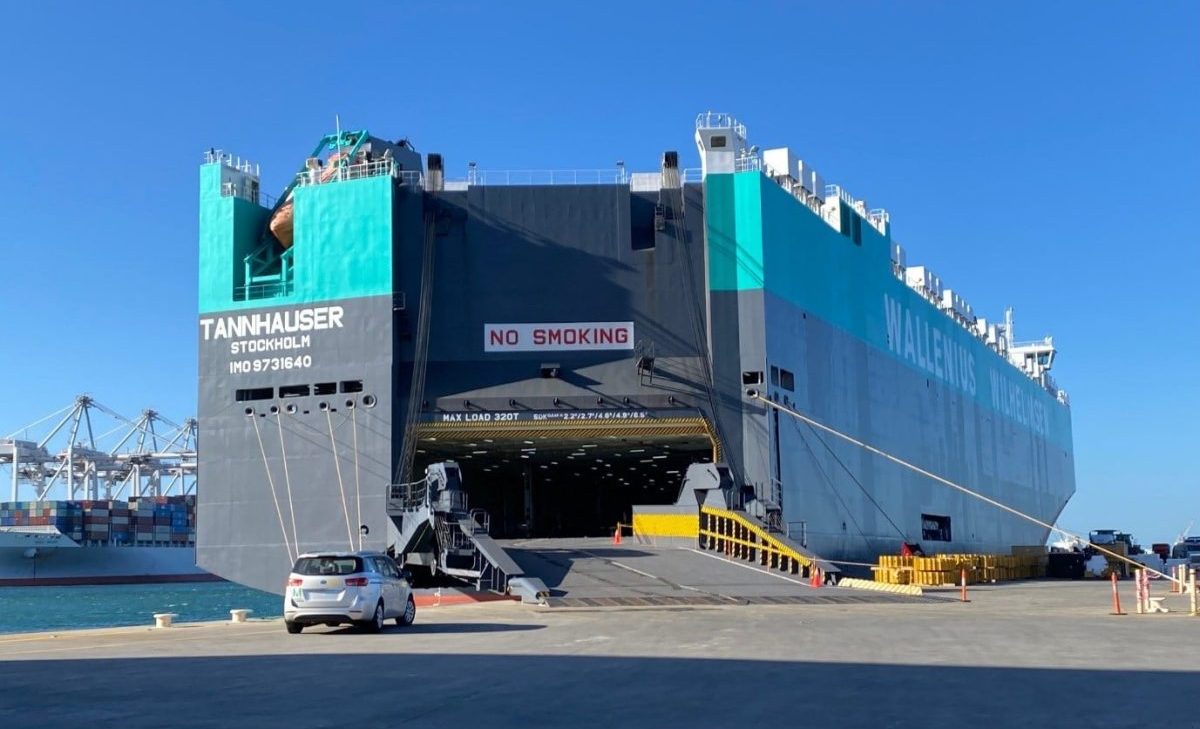
Farm machinery is getting held up on arrival at Australian ports amid a backlog of motor vehicles carrying an increased level of biosecurity risk. Photo: Port of Melbourne
FARM machinery remains caught up in delays at ports as agencies remain on high alert for biosecurity incursions arriving in imported motor vehicles.
In his February sales report, Tractor and Machinery Association executive officer Gary Northover said industry experts have warned the complex nature of biosecurity requirements was expected to have an impact for some time yet.
“Particularly affected will be farmers looking to sow winter crops and harvest crops such as grapes due to an unprecedented backlog in vehicle processing, leaving their incoming machinery stuck in ports around the country,” Mr Northover said.
He referred to information from a senior industry figure contacted by the TMA, who said significant bottlenecks exist at the wharves.
“If any foreign material is found on any item of imported machinery, the whole shipment is put on hold for de-seeding and further cleaning.
“This slow and manual process can only take place at approved facilities, causing enormous inefficiencies on the system, leading to huge volumes of vehicles left in quarantine awaiting processing.”
TMA said theses delays were also impacting shipping companies, with some vessels being forced to divert to other ports.
A Federal Department of Agriculture, Fisheries and Forestry spokesperson said the department has not seen an increase in biosecurity issues related directly to farm machinery.
“There are no known systemic contamination issues with imported agricultural machinery arriving in Australia,” the spokesperson said.
“The department is not seeing the high volumes of agricultural machinery arriving contaminated as we are with new vehicles.”
Snails, insects, weed of concern
In a statement issued March 3, the Federal Government’s Department of Agriculture, Fisheries and Forestry said that since 2021, Australia’s ports have seen an 88 percent increase in new vehicles arriving with biosecurity risk material contamination.
In the same time, the total number of new vehicles imported into Australia has increased 17pc.
DAFF has advised that three of the main biosecurity concerns related to vehicle imports are Siam Weed, exotic snails, and the Brown Marmorated Stink Bug.
The department told Grain Central it has continued to “strongly encourage” importers to implement their own offshore cleaning measures to help reduce the significant volume of units arriving with biosecurity risk material.
“Such contaminated vehicles require treatment/cleaning to manage the biosecurity risk before they can be released,” the spokesperson said.
“The industry third-party commercial companies that undertake this cleaning are struggling to keep up with such significant volumes of contaminated vehicles and therefore resulting in port congestion and delays.
“If vehicles arrive without contamination, they can be released with very short turnaround; this will address the automotive industry’s current delay issues.”
The department has also made available an education package manufacturers can use to implement such measures in their overseas supply chains.
These requirements include inspections, treatment if necessary, and documentation to verify compliance.
To address these challenges, the Australian Government has announced a range of measures aimed at improving the efficiency of the shipping industry.
They include increased investment in biosecurity infrastructure and additional resources to support the processing of incoming vessels.
Tractors bear brunt
TMA sales figures indicate a drop of 29pc in February 2023 as compared with the February 2022, but sales of combine harvesters remained healthy in February, supplying the back end of this year’s harvest with a further 20 units being delivered in the month.
Mr Northover said limited stock availability and higher interest rates also appear to be contributors to the drop in tractor sales.
“Supply of machines out of the US at present is very slow with lead times often stretching beyond 12 months with the situation out of Europe only slightly better.”
Source: TMA, DAFF

HAVE YOUR SAY